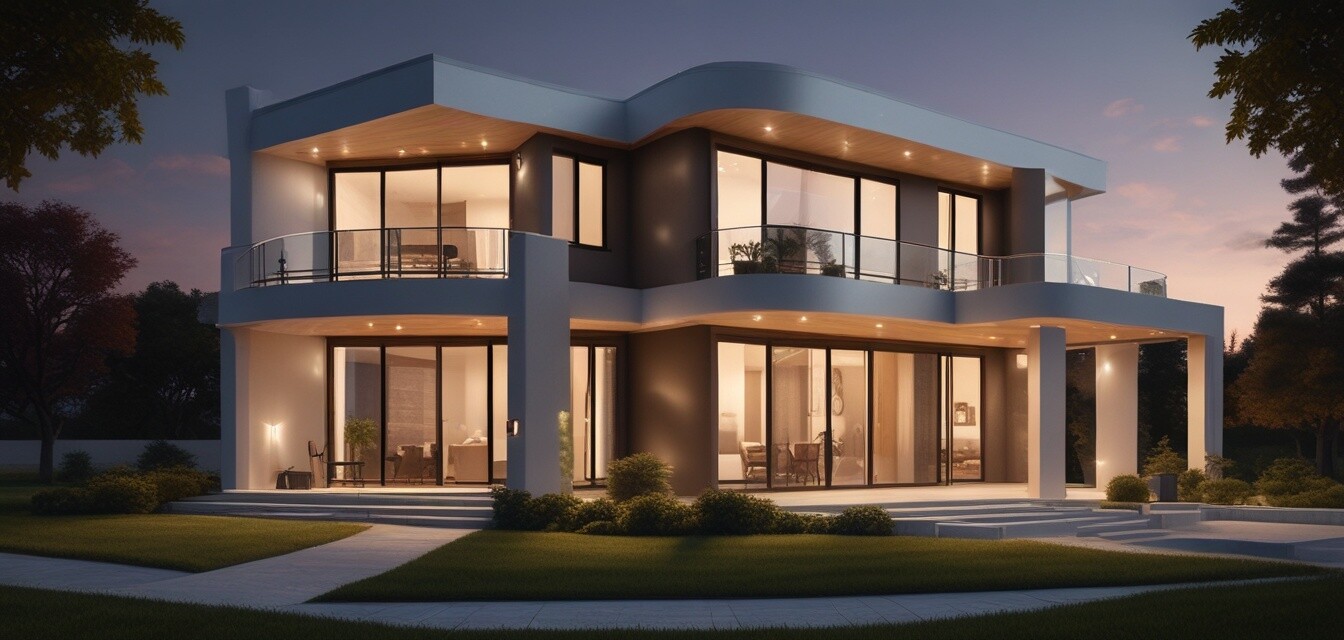
How Home Design is Influencing Security Technology
Key Takeaways
- Modern home design is evolving to incorporate advanced security technology.
- Homeowners should consider aesthetics alongside functionality for security systems.
- Integration of smart features is driving innovation in security technology.
- Design trends directly affect the choice and placement of security devices.
- Understanding these trends can help homeowners make informed decisions.
As modern homes evolve towards sleek lines and open spaces, the security technology that protects them is also adapting. Homeowners today are not just looking for safety; they are seeking solutions that seamlessly integrate into their designs while maximizing functionality. In this article, we explore how current home design trends are influencing innovations in security technology, what homeowners should consider when updating their systems, and how to achieve that perfect blend of aesthetics and security.
The interplay between design trends and security technology
Modern design extends beyond mere looks; it also encompasses how functional spaces work together. This evolution is evident in the shift towards smart home technologies, providing enhanced security without sacrificing home aesthetics. Below are key aspects of this relationship:
| Design Trend | Impact on Security Technology |
|---|---|
| Open floor plans | Need for unobtrusive security cameras and sensors. |
| Natural light incorporation | Development of window sensors and smart lights that enhance visibility. |
| Outdoor living spaces | Focus on robust outdoor security solutions like motion-activated cameras. |
| Sustainable materials | Integration of eco-friendly security systems. |
Popular design trends impacting security choices
- Sleek aesthetics: Innovative designs in smart locks and cameras that blend into the décor.
- Smart home integration: Devices that connect seamlessly with home automation systems.
- Minimalist design: Emphasis on concealed security devices that don’t disrupt the flow of space.
- Personalized spaces: Customized security solutions tailored to individual home layouts.
1. Sleek aesthetics
The demand for sleek designs is pushing manufacturers to create security devices that appear less intrusive. Homeowners can enjoy peace of mind without compromising on style.
2. Smart home integration
Today's security systems can be part of a larger smart home setup. This allows users to monitor and control security devices from their smartphones or via voice commands, creating a more intuitive living experience. For further insights on smart devices, check our home automation devices page.
3. Minimalist design
As more homeowners lean towards minimalism, less is more. This trend encourages the installation of security devices that can be easily concealed, ensuring that the beauty of the home is preserved while still maintaining safety.
4. Personalized spaces
Customization allows for tailored security solutions that consider each home's unique layout. Homeowners can choose specific products that fit their design aesthetics and security needs, enhancing both functionality and visual appeal. For additional advice on personal security choices, visit our buying guides.
Emerging security technology trends
As design trends evolve, so too does the technology that protects our homes. Key innovations currently shaping the market include:
| Technology Trend | Description |
|---|---|
| AI-powered cameras | These cameras use artificial intelligence to distinguish between people and objects, reducing false alarms. |
| Smart doorbell cameras | These devices enhance entryway security by allowing homeowners to see and interact with visitors remotely. |
| Biometric locks | Locks that use fingerprints or facial recognition for enhanced security measures. |
| Integration with smart home systems | Linking security devices with other smart home gadgets for comprehensive monitoring. |
Best practices for homeowners
Tips for homeowners when updating security systems
- Assess your unique layout and identify vulnerable areas.
- Choose devices that match your design and aesthetic preferences.
- Prioritize items that integrate with existing smart home technology.
- Stay updated with the latest innovations in both design and security.
- Consult with professionals for tailored security solutions.
Conclusion
As home designs continue to evolve, security technology must adapt accordingly. Homeowners should ensure that their security solutions are not only functional but also reflective of their personal style and the broader design of their homes. By embracing modern aesthetics while prioritizing safety, homeowners can create secure environments that remain inviting and stylish. To keep informed on this dynamic field, explore our latest updates in the news section.
Pros
- Security systems can blend seamlessly with modern designs.
- Smart features enhance both safety and convenience.
- Customization allows for tailored security solutions.
Cons
- Investment in higher quality design may incur significant costs.
- Integration complexity may require professional installation.
- Ongoing need for updates and maintenance with smart technology.
